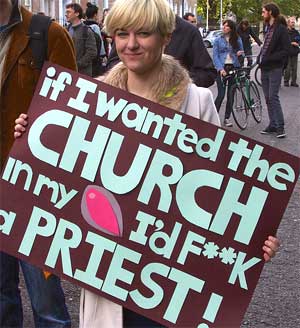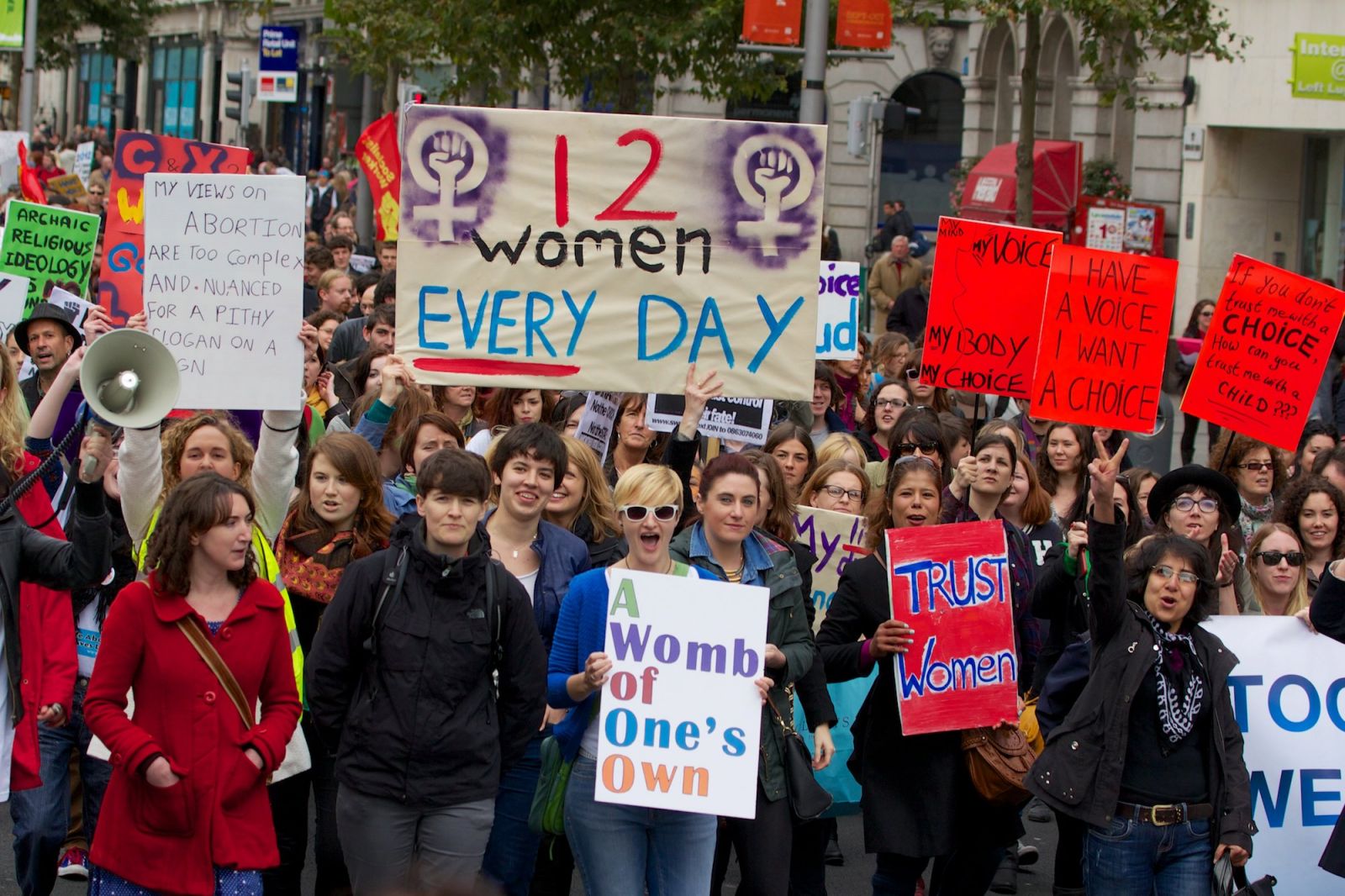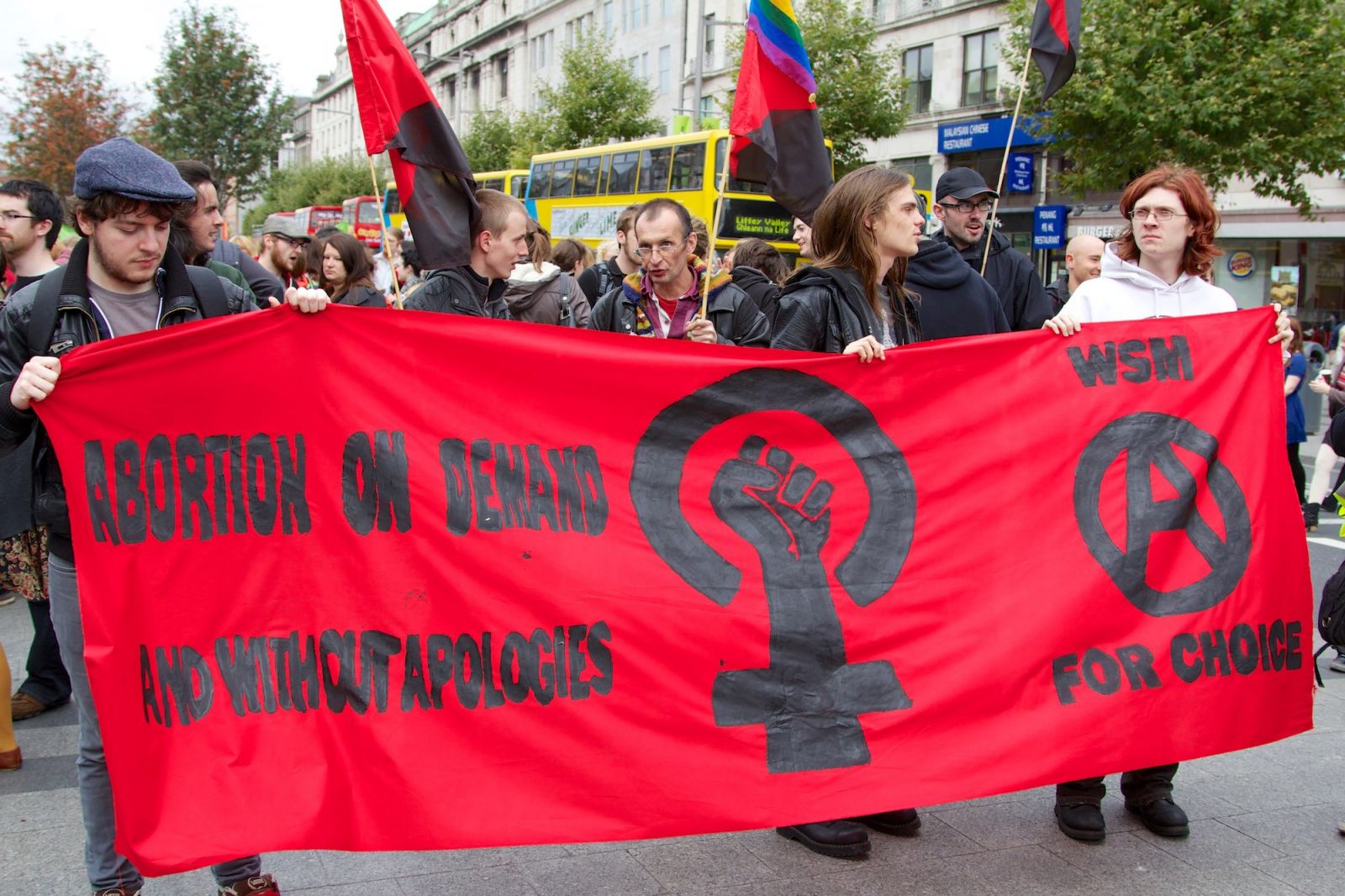Over 30 years of anarchist writing from Ireland listed under hundreds of topics
March for Choice - Thousands take to the Streets
 This year has seen a re-energised campaign for abortion rights in Ireland, starting with the Action on X campaign at the beginning of the year but Youth Defense's awful billboard campaign over the summer invigorated pro-choice activists to take full scale action. On Saturday 29th September the March for Choice was organised to mark International Day for Decriminalisation of Abortion. This has also been organised a month ahead of a publication of a report on abortion from a government appointed expert group, which will examine how the Governement will handle the abortion issue.
This year has seen a re-energised campaign for abortion rights in Ireland, starting with the Action on X campaign at the beginning of the year but Youth Defense's awful billboard campaign over the summer invigorated pro-choice activists to take full scale action. On Saturday 29th September the March for Choice was organised to mark International Day for Decriminalisation of Abortion. This has also been organised a month ahead of a publication of a report on abortion from a government appointed expert group, which will examine how the Governement will handle the abortion issue.
Figures on the amount of attendees proved to be controversial. The Irish Times and Gardai gave relatively low figures. However, attendees and videos posted of the march showed that in excess of two and a half thousand people showed up. The Irish times later revised their estimate of five hundred to reflect this. The march started at the Spire, which is in itself unusual. However, it proved to be beneficial as it received more attention from passers-by, some of which joined the march. A small group of pro-lifers also stood on O'Connell Street to make their voice heard, but were barely noticed by many in the rally. Many attendees wore red and carried suitcases to signify the many women who have to travel to receive an abortion. Red is the colour worn by people in the UK who meet women coming over from Ireland to have an abortion.
Ireland has not seen such a large pro-choice demostration for many years, which shows how important the issue is to many people, but not only that, but for many women. A particularly interesting point was highlighted the previous evening at the Screening for Choice. The profile of choice activists in many countries, for example the USA is predominately women, but in Ireland especially in the past this has not been the case In recent years there has been a change, where it mainly women are becoming involved.
The march finished up at Merrion Square after walking through the City Centre passed the Dáil, many speeches were heard including from trans* activist Ariel Silvera who highlighted that LGTBQ community are natural allies to the pro-choice movement, as people in that community need abortions too. While queer women may not need abortions themselves, their sisters, their friends, their mothers and their daughters may do. Many trans*men can get pregnant and may need abortions too. Abortion providers and campaigners have to be aware of their needs.

Mara Clarke from the Abortion Support Network also spoke about her experience of raising money for the network. She discussed how rich women can afford to travel to have an abortion, but poor, working class women are unable to travel and are forced to give birth. The Abortion Support Network provides financial aid and accommodation to women who are travelling over from Ireland to the UK to have an abortion. They are funded exclusively by private donations and fundraisers.
An often forgotten group are migrant women many of whom are not only not able to afford abortions, but are also denied their right to travel. Refugee women are especially hit hard, as they receive the allowance €19.10. Osaro Azamosa from the Irish Feminist Network spoke about this in her speech.
These three speeches drew attention to groups of people who are often marginalised in the abortion debate and are either forced to give birth or have a self-induced abortion. Self-induced abortion is not often discussed in Ireland. While the exact figures are not known for women seeking this type of abortion, 1,216 abortion pills were seized by the Irish Medicine Board in 2009. Many women are turning to this cheaper option as they are hit by the recession. The number of women in Ireland getting abortions are much higher than the figures of women who travel to the UK, as many may go to other countries other than the UK or will not say they are from the Ireland, when traveling over for an abortion. It is time to make abortion legal and on demand and lift the stigmatisation.

Further reading
This is a selection from the 180 photographs we published in our Facebook album of the March for Choice.
For background articles click on the pro-choice tag on the right.

